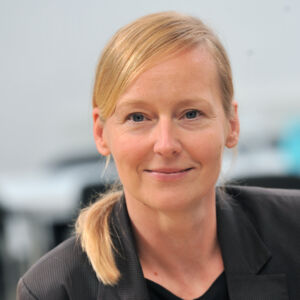Groundwater is the most important source of drinking water. Groundwater bodies are also of great importance because of their unique biodiversity and vital ecosystem services. But the quality of this valuable water resource is coming under increasing pressure due to climate change, overuse and pollution. Despite existing EU directives and comprehensive regulations, a good third of groundwater bodies in Germany now fail to meet the required good chemical status. In order to be able to better examine and assess the quality status in the future, a research team is developing an assessment concept for groundwater ecosystems. Here, the ISOE project team contributes socio-ecological analyses.
Although groundwater is designated as a habitat worthy of protection – for example in the Groundwater Directive – it is not sufficiently protected as an ecological asset in water management practice. For example, when determining the chemical status, often only a few pollutant groups are examined, which do not reflect the actual trace substance load of the groundwater. What is missing is a comprehensive assessment system that allows early indications of poor water quality. Only in this way is it possible to adequately protect the groundwater ecosystem in the future and to ensure a safe drinking water supply.
The research project “gwTriade – Integrative Monitoring of Groundwater Quality” addresses the discrepancy between the great importance of groundwater and its quality that is often too low. gwTriade starts with improving the understanding of groundwater ecosystems and completes the existing assessment concept by offering important quality criteria. For this purpose, the manifold anthropogenic influences on groundwater are taken into account, key pollutants are identified and suitable test procedures are developed for assessing the impact of these substances on groundwater biodiversity.
Comprehensive quality assessment through joint natural and social science analysis
The resulting monitoring procedure is based on a triad approach that combines standardized ecotoxicological bioassay procedures with chemical analysis and the recording of faunal diversity. Only the interaction of these three methods allows a comprehensive assessment of groundwater quality. The ISOE team, led by Johanna Kramm, contributes social analysis of policy frameworks and usage patterns to this integrated assessment concept. It is also responsible for the transfer of research results into practice, for example with the help of target group-specific recommendations for action in groundwater monitoring.
To this end, the ISOE researchers also address the different societal demands on groundwater protection and use and identify existing conflicts. Based on experience with other environmental conflicts, mechanisms and approaches for conflict management in the groundwater sector are derived. In a final step, the evaluation criteria developed in the project are then examined and prioritized with regard to societal objectives. The ISOE researchers are thus complementing the necessary scientific basis for measures aimed at protecting and preserving the groundwater ecosystem and its services.
About the project
The project, led by Goethe University Frankfurt am Main, is funded by the German Federal Ministry of Education and Research (BMBF) under the Sustainable Groundwater Management (LURCH) funding measure. In the area of research,ISOE – Institute for Social-Ecological Research is joined by the followingproject partners:Rheinisch-Westfälisches Institut für Wasserforschung (IWW), Mühlheim an der Ruhr, Rheinland-Pfälzische Technische Universität Kaiserslautern-Landau (RPTU), and Zweckverband Landeswasserversorgung, Stuttgart. Practice partners include the NORMAN Network of reference laboratories, research centres and related organisations for monitoring of emerging environmental substances, Deutscher Verein des Gas- und Wasserfaches (DVGW), and Umweltbundesamt (UBA). www.isoe.de/en/nc/research/projects/project/gwtriade
Scientific contact:
Dr. Johanna Kramm
Tel. +49 69 707 6919-16
kramm@isoe.de
www.isoe.de
Press contact:
Melanie Neugart
Tel. +49 69 707 6919-51
neugart@isoe.de
www.isoe.de
Contact:


